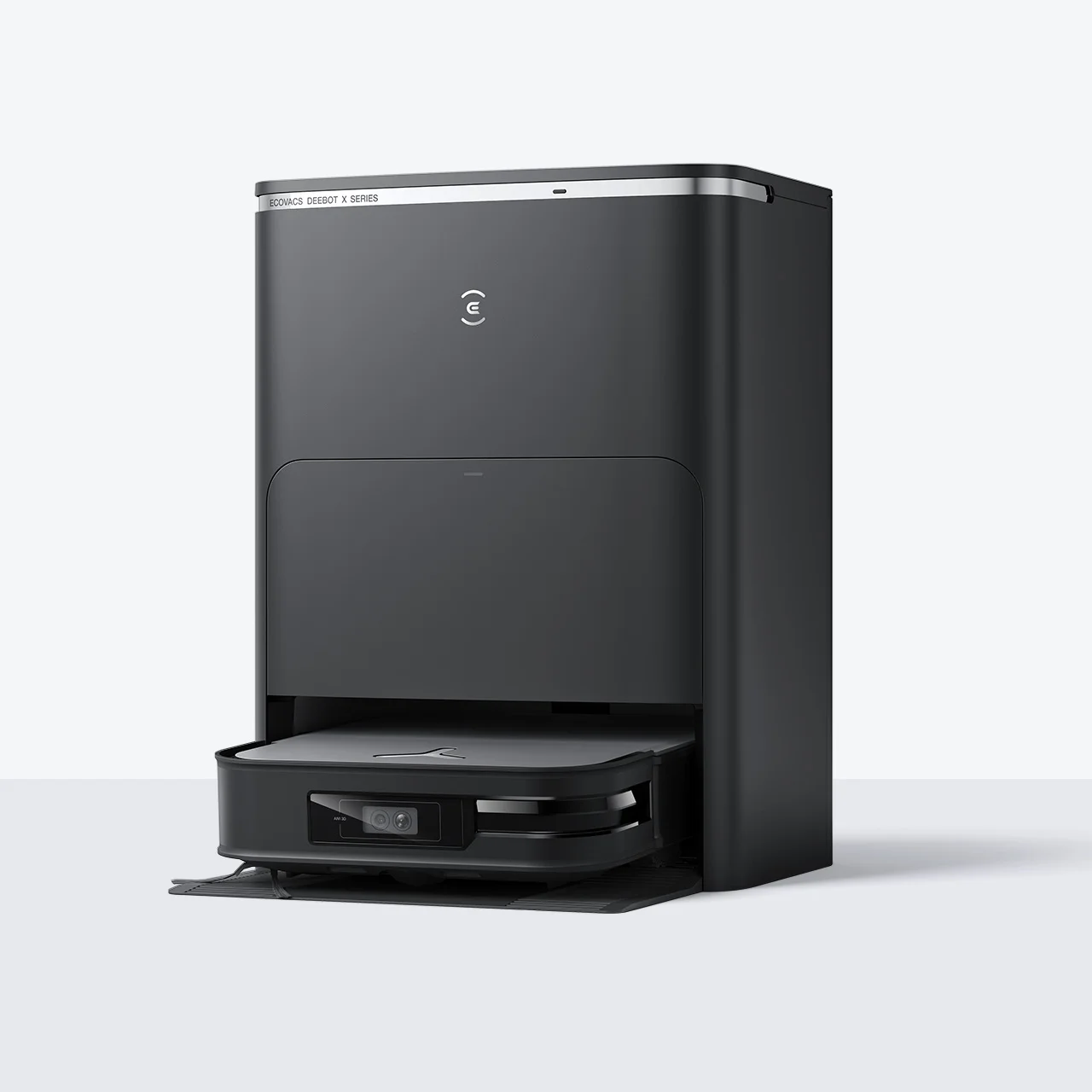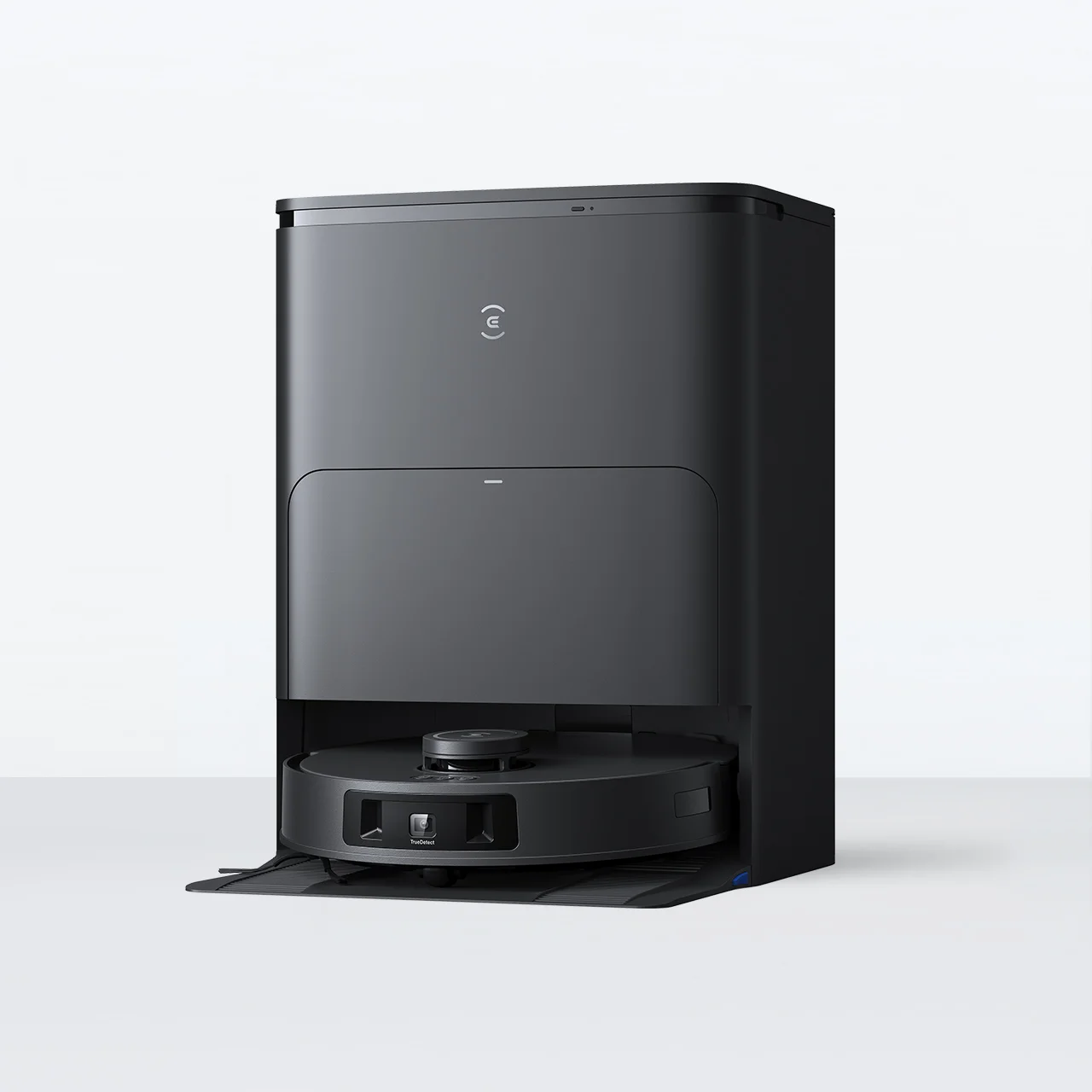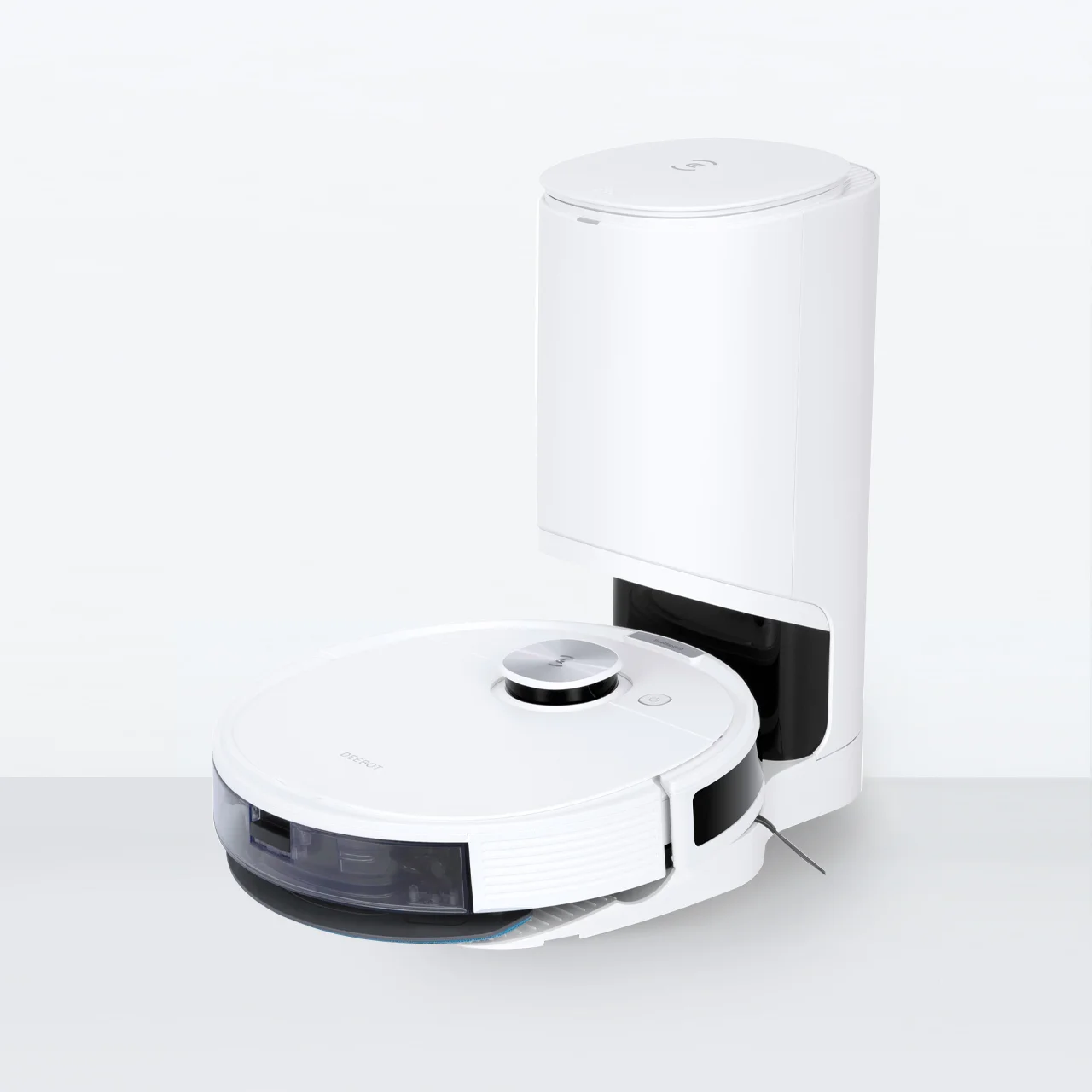
If you ever confuse "5GHz" with “5G,” you’re not alone. They are two different technologies, with 5G referring to the cellular technology that became available in Australia in 2020. On the other hand, 5GHz is a Wi-Fi frequency band, not a mobile network, and has been around much longer. It offers faster speeds and lower latency compared to the more common 2.4GHz band, allowing it to penetrate through clutter and interference to maximize performance.
So you can imagine, robot vacuums that work with 5GHz Wi-Fi can enjoy quicker responses and more reliable connections, such as navigating your home more efficiently than one using the 2.4GHz band.
Do Robot Vacuum Work With 5GHz?
Yes, there are robot vacuums compatible with 5GHz Wi-Fi networks on the market, though not all models do. The higher speed supported by 5GHz can translate into quicker responses to home scenarios and faster communications for navigation and obstacle avoidance.
The 2.4GHz band covers a larger area and is better at penetrating solid objects like walls, making it ideal for bigger homes. However, it has a lower data rate and is more prone to interference because many electronic devices use this frequency.
In contrast, the 5GHz band provides a higher data rate and is less prone to interference, hence faster speeds at shorter ranges. Although it covers a smaller area and struggles to penetrate solid objects, it is perfect for high-speed internet needs in smaller spaces.
Which Robot Vacuums Work With 5GHz?

Depending on the brands and models, you can find robot vacuums that connect to 5GHz, or both 2.4GHz and 5GHz networks on the market.
At the moment, most of the models like DEEBOT only support 2.4GHz wireless networks. This is because 2.4GHz covers a larger area and a more stable connection between your automatic vacuum and the cloud servers. When you control your DEEBOT remotely using the app, the command goes through ECOVACS's cloud servers before reaching your vacuum. Stability is more important in this communication than speed, and 2.4GHz provides that stability over a broader range, even though it has lower speeds than 5GHz. Since the data exchanged is minimal, this low bandwidth is sufficient for your vacuum to receive commands reliably.
How To Connect Robot Vacuum To 5GHz?
Connecting your smart vacuum to a 5GHz Wi-Fi network is easy and the same as connecting to a 2.4GHz network. But first, you should check your Wi-Fi router configuration.
Check which band your router supports. Older routers may only broadcast in 2.4GHz, but most newer routers are dual-band, broadcasting both 2.4GHz and 5GHz signals. There are two main configurations for dual-band routers:
● Separated SSIDs: These routers broadcast separate 2.4GHz and 5GHz networks simultaneously. You'll see network names like "Name_2.4" and "Name_5". You can choose which network to connect to.
● Combined SSID: These routers broadcast both 2.4GHz and 5GHz signals under the same network name. The router and device will automatically select the best band based on the connection and device capabilities.
Once you understand how your router works, it’s time to connect your auto vacuum to the network. Since the process is similar for 2.4GHz and 5GHz networks, let’s use DEEBOT as an example.
- Get your smartphone, robotic vacuum cleaner, and Wi-Fi router ready. Confirm you are not using a VPN or Proxy Server, and position the DEEBOT within 1.5m of the router and your phone.
- Go to your phone's Wi-Fi settings to see all detectable networks. Locate your Wi-Fi network name (SSID) and connect to your home’s 2.4GHz or 5GHz Wi-Fi signal using your password. If you have a combined SSID, try connecting to it first.
- In case your device only supports 2.4GHz, but your phone automatically connects to the 5GHz signal, it’s best to temporarily "Forget" the 5GHz network. After successfully connection, you can reconnect to your 5GHz Wi-Fi and not worry about the 2.4GHz network again.
- Follow the prompts in your app to complete the connection.
Why Isn't My Robot Vacuum Connecting To 5GHz?

Struggling to get your robot vacuum to work with 5GHz network? We have listed common connectivity issues and errors people often face, along with solutions to get your vacuum up and running smoothly.
Incompatible Frequency
Not all auto vacuums and Wi-Fi routers support 5GHz Wi-Fi. If your vacuum only connects to 2.4GHz, it won't detect the 5GHz network, and vice versa. Check your vacuum's manual or specifications. The solution is simple: ensure your router broadcasts the correct frequencies, and connect your vacuum to the compatible network instead.
Dual-Band Router Settings
If your dual-band router is set to broadcast only the 2.4GHz network, your automatic vacuum may not connect if you wish to use the 5GHz network. If you're not seeing a 2.4GHz or 5GHz network on your list, it might be disabled. Check your router's settings to ensure both networks are visible and accessible.
Signal Strength
Since the 5GHz network has a lower penetration rate, weak signal strength can prevent your robotic vacuum cleaner from connecting. Position your vacuum close to the router during setup, and if the signal remains weak, consider using a Wi-Fi extender to boost coverage. Besides, minimize obstructions like walls and furniture between the router and the vacuum to improve connectivity.
Channel Interference
Channel interference happens when multiple devices use the same Wi-Fi channel and cause congestion. To fix this, access your router's settings and change the Wi-Fi channel to a less crowded one. Many modern routers have an auto-select feature to choose the best channel automatically, which can help reduce interference.
MAC Address Filtering
If its MAC address isn't on the allowed list, your smart vacuum may not connect to the 5GHz network. To fix this, log into your router’s settings and either disable MAC address filtering or add your vacuum’s MAC address to the allowed list.
Firmware Update
Regular updates often include connectivity improvements. Check the manufacturer's website or app for firmware updates to make sure the firmware has the latest features and compatibility for a smoother connection.
FAQ
How do I know if my robot vacuum is connected to the correct network band?
To check if your robot vacuum is connected to the correct network band, open your Wi-Fi settings on the vacuum's app or control panel. Verify if it shows a 2.4GHz or 5GHz connection. You can also refer to the user manual or manufacturer's app for specific instructions and details.
Do I need a special router for my robot vacuum to work with 5GHz Wi-Fi?
You don't need a special router for your robotic vacuum cleaner to work with 5GHz Wi-Fi, but you do need a dual-band or tri-band router that supports 5GHz. Check if your router broadcasts both 2.4GHz and 5GHz networks, as well as the vacuum's compatibility with 5GHz Wi-Fi before setting up.
Can I switch my robot vacuum between 2.4GHz and 5GHz Wi-Fi networks?
Switching your smart vacuum between 2.4GHz and 5GHz Wi-Fi networks depends on the vacuum's compatibility. Some models support both bands, allowing you to switch. To do so, go to your router settings to enable both networks, then reconnect the vacuum to the desired network through its app or settings.
Is it safe to connect my robot vacuum to a 5GHz network in terms of security?
Yes, connecting your auto vacuum to a 5GHz network is safe in terms of security. Most modern routers use robust encryption protocols to protect your data. Use a strong, secure password and keep your router’s firmware updated.
Related Products









